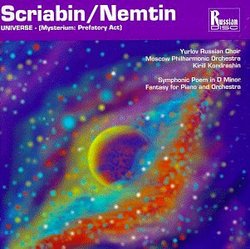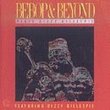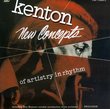| All Artists: Moscow Philharmonic Orchestra Title: Alexander Scriabin / Alexander Nemtin: Universe (Mysterium: Prefatory Act) / Alexander Scriabin: Symphonic Poem in D minor / Fantasy for Piano & Orchestra - Kirill Kondrashin, et al. Members Wishing: 0 Total Copies: 0 Label: Russian Disc Release Date: 2/7/1995 Genre: Classical Styles: Opera & Classical Vocal, Forms & Genres, Concertos, Theatrical, Incidental & Program Music, Historical Periods, Modern, 20th, & 21st Century, Instruments, Keyboard Number of Discs: 1 SwapaCD Credits: 1 UPC: 748871100428 |
Search - Moscow Philharmonic Orchestra :: Alexander Scriabin / Alexander Nemtin: Universe (Mysterium: Prefatory Act) / Alexander Scriabin: Symphonic Poem in D minor / Fantasy for Piano & Orchestra - Kirill Kondrashin, et al.
CD DetailsSimilarly Requested CDs
|
CD ReviewsExcellent and rare recording Charles Karpuk | norfolk, virginia | 01/23/2009 (5 out of 5 stars) "I think this is an excellent recording. First, I think the cinductor is superb. I have several recordings by Kondrashin. It is also to my knowledge the Only recording of this very unusual Scriabin work. Scriabin seems finally to be achieving some recognition in the classical world, there being recordings of his collected piano music and all of his other orchestral works, so this fills out the repertroire for him. This work also comes from an unusual and very dramatic period for Russians and Russian history, and reflects the enormous and apocalyptic forces in Russia. I really appreciate this recording, though the harmonies and style may be a little difficult for those who listen to more traditional classic works," Fait Lux - the light shines Helen Kim | Seoul Korea (South) | 11/21/2002 (5 out of 5 stars) "This work had existed only in sketch form until Mr. Nemtim fleshed out the work. Scriabin's untimely death prevented him from finishing this astonishing score and Mr. Nemtim's efforts are absolutely wonderful and intuitive in finishing this last great work. I highly recommend this for anyone that appreciates Scriabin's music and for those who like incredible orchestration." Prefatory Act is Amazing! Used is expensive! Buy it anyway! Benjamin D. Miller | Atlantis, Bottom of Sea | 12/25/2009 (5 out of 5 stars) "This music is breathtaking. While I have heard the entirety of Nemtin's work of the unfinished Mysterium produced about three hours of music, we have around 45 min. here. Though I am baffled that not only this recording is out of print but that it seems the rest of the work has never been recorded, I am very greatful for this c.d. Scriabian's theory of Akkord Plemory or, as later named, mystic chords, chords upon which, theoretically, the fullness of the Bythos would be revealed (kind of like Heidegger's theory of the revelatory poem before he had written it), is a grandiose idea, as is his idea that the performance of the Mysterium would cause an apocalypse. However, Scriabin's work with making his own chords and the composition of his music outside of specific keys are proven here to be not the work of an arrogant man, opportunist or charlatan, but instead the work of a genius. This music proves that his dabbling in esoterica yielded unparalleled results. It is quite amazing that despite his stark deviation from some of the very foundations of prior music, his music is not really very discordant or abrasive at all. I would say that it really is the music of a mystic and is quite elevating. How can one achieve the sounds of mysticism? Ask Scriabin. By the way, another absolutely brilliant performance is Sofronitsky at the Scriabin Museum. The piano was one of Scriabin's (yes the one played). That explains the funky sounding piano. It is probably that the strings needed to be replaced but they were not going to replace the strings of a piano that Scriabin owned. The aforementioned pianist puts more emotion into Scriabin's work than I could have imagined having listened to some other piano recording (tho they were technically far superior sound wise, both recording & piano). A friend is sending me the Horrowitz recordings, and I hear they are quite good. I must mention also: Scriabin was a Russian that wanted to be fully European. Of course, Russia has had to draw influence from Europe just as America has. I only mention it because there are those Russian composers, e.g. Shostakovitch, in whose work the Russian origin is immediately revealed."
|


 Track Listings (3) - Disc #1
Track Listings (3) - Disc #1








